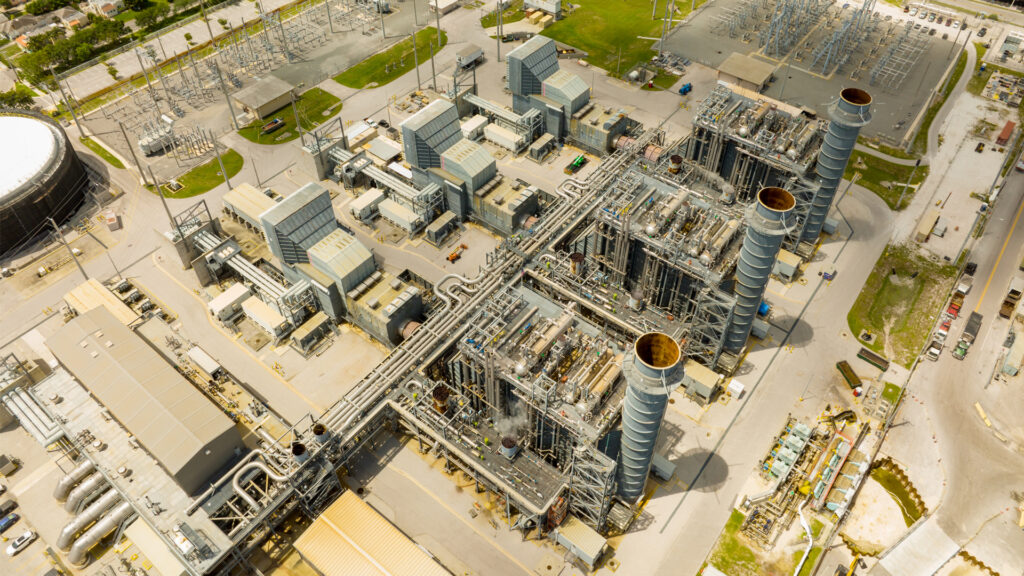By Leticia Nogueira and Emily Pickett, Moms Clean Air Force
While “fossil fuels” brings to mind pollution and environmental harm, “natural gas” is often associated with clean, sustainable energy. Here’s the catch — natural gas is a fossil fuel, and it isn’t nearly as environmentally friendly as the name might suggest.
It’s important for Floridians to know the truth about natural gas since it powers 75% of our state.
As moms, we’re committed to doing everything we can to protect our children and their environment. That’s why we’re unmasking what Florida’s dependence on natural gas means to our health and why it’s imperative that we shift to clean sources of energy.
Fact: Natural gas is a dirty fossil fuel

In the 1800s, natural gas was deemed a cleaner alternative to coal because it burned cleaner and didn’t have a distinct smell like coal. However, we now know that natural gas consists primarily of methane, a potent greenhouse gas that accelerates the warming of our climate and contributes to ground-level ozone formation, or smog.
When considering the unnatural actions humans undertake to extract, transport and burn it — and the pollution produced at every step — it’s clear that “natural” doesn’t mean “clean” or “healthy.” Natural gas pollution is a real concern for all people, but especially for vulnerable groups like children, whose lungs are still developing, and those suffering from respiratory issues.
Bottom line: The gas industry’s attempt to capitalize on “natural” is a deceiving attempt at greenwashing.
Fact: Natural gas pipeline leaks pose risks to the safety of our communities.
Florida pipes in most of its natural gas from other states via an intricate network of 6,000 miles of pipelines and studies show that 30% of this network is susceptible to leaks due to faulty pipelines and blowouts. Worryingly, a bill in the Florida Legislature could reduce regulations on natural gas pipelines and put Floridians’ health and safety at an even greater risk.
Bottom line: Given the extensive network of natural gas pipelines in Florida, the looming threat of leaks and explosions is undeniably real, particularly for those living or working nearby.
Fact: Burning natural gas at any stage in the energy process poses health risks.

Comprehensive studies reveal the health risks associated with gas appliances inside homes. While most Florida homes have electrical appliance hookups, these findings exemplify the health hazards associated with the combustion of natural gas at any location.
Breathing nitrogen dioxide (NO2), for example, emitted from burning natural gas, is associated with a variety of respiratory issues such as inflammation of the airways, reduced lung function, asthma and chronic bronchitis. Natural gas power plants also emit pollutants that elevate the risk of blood cancer and lung cancer.
This pollution is particularly harmful for those living or working near one of Florida’s 63 natural gas burning facilities, including nine of the country’s dirtiest power plants. Moreover, pollution from natural gas jeopardizes the health of Florida’s 4 million children, especially the nearly 300,000 who suffer from pediatric asthma, putting them at risk of respiratory complications.

ProPublica’s Cancer-Causing Industrial Air Pollution map identifies hazardous chemicals released by natural gas power plants or other facilities that burn natural gas. The ProPublica map estimates that emissions from the Florida Power and Light Manatee Power Plant, for example, add an excess lifetime cancer risk of 1 in 260 for those in the nearby area.
Bottom line: Power plants burning natural gas release numerous pollutants that endanger the health of Floridians.
Shifting away from natural gas is not only imperative for our health, but essential in meeting the state’s energy goals to transition to 100% renewable energy by 2050. It’s better for our wallets too. Solar is now 15% more cost effective than natural gas and carries no additional fuel costs.
So, why are we still relying on fossil fuels when safer alternatives, like solar, are readily available? In order to protect our children now, and generations to come, we must embrace clean energy.
Leticia Nogueira, PhD, MPH, is a scientific director of health services research. Dr. Nogueira’s research focuses on cancer disparities that can be addressed through policy changes, especially those related to climate change and structural racism. Emily Pickett is the Florida organizer for Moms Clean Air Force.
Sign up for The Invading Sea newsletter by visiting here. If you are interested in submitting an opinion piece to The Invading Sea, email Editor Nathan Crabbe at ncrabbe@fau.edu.



